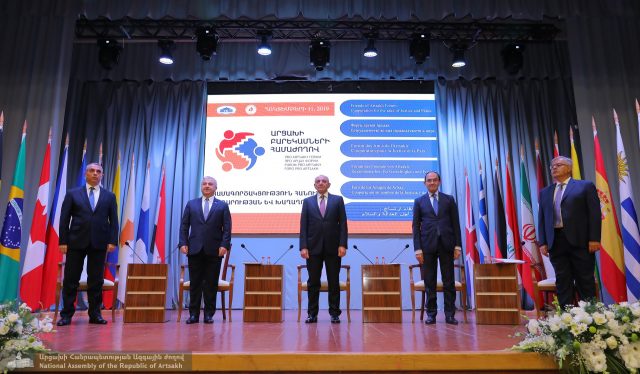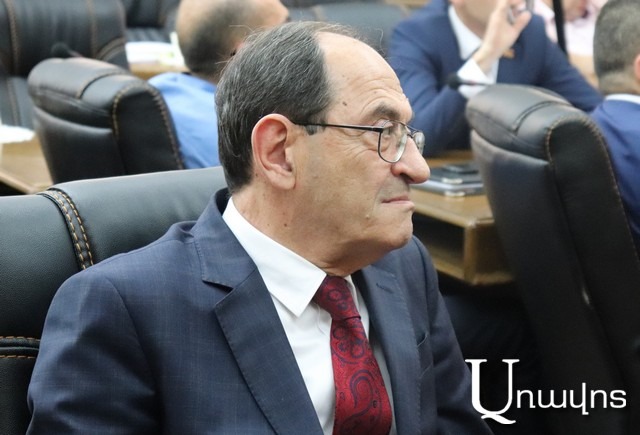“The people of Artsakh have flawlessly implemented their right to self-determination. This right is considered to be one of the three main goals of the UN,” Deputy Minister of Foreign Affairs Shavarsh Kocharyan said in Stepanakert. “This right cannot go against any international legal foundation, including the right to territorial integrity. This law is superior to any international document,” he emphasized.
The deputy minister also answered questions about why there is no progress in the Artsakh conflict resolution process. “We have made progress in the resolution process that the people have felt themselves. It was the ceasefire agreement signed in 1994 that Artsakh and Azerbaijan prepared, which Armenia also became a part of as a result of negotiations,” Shavarsh Kocharyan emphasized.
He added that Azerbaijan accepted Artsakh as one of the sides in the conflict and they held negotiations together on different levels. “This is why we were able to sign the ceasefire agreement. But since Azerbaijan is avoiding direct negotiations with Artsakh and is pretending like it doesn’t exist, this means that Azerbaijan doesn’t want there to be any progress in the negotiations process. Azerbaijan is pretending to negotiate, and it is carrying out a propaganda war under the disguise of negotiations. It’s trying to show the international community that it’s not a matter of the right to self-determination, but it’s simply a territorial conflict between Armenia and Azerbaijan.”
Read also
Regarding Artsakh’s return to the negotiations table, Shavarsh Kocharyan said, “It is impossible to have any progress in the negotiations process without Artsakh. No one is authorized to speak on behalf of Artsakh on issues such as its condition and its territorial integrity.”
Luiza Sukiasyan






















































